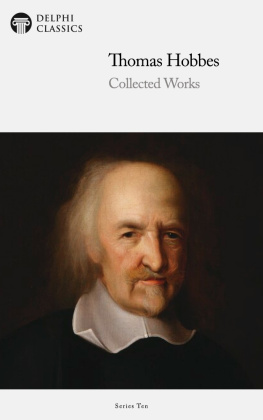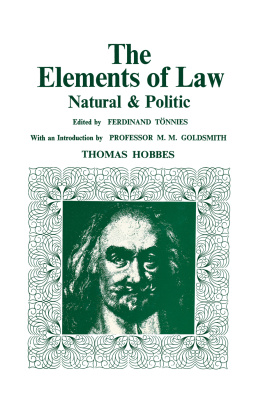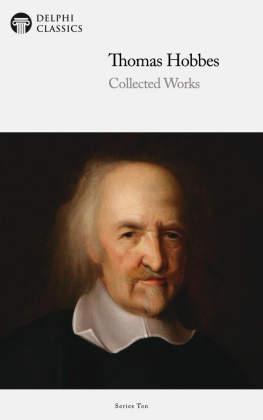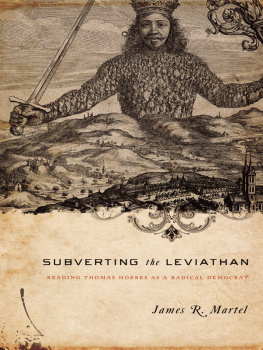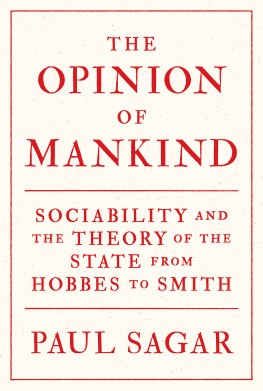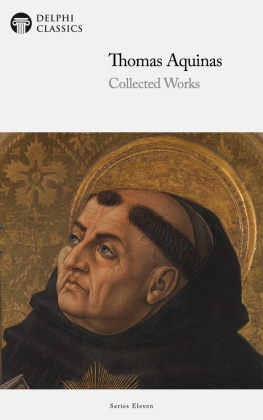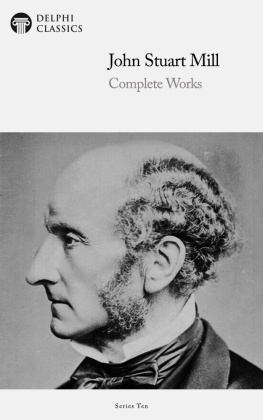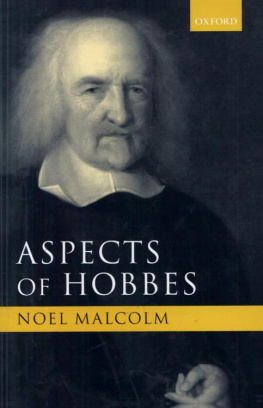
The Collected Works of
THOMAS HOBBES
(1588-1679)

Contents

Delphi Classics 2019
Version 1


Browse our Main Series

Browse our Ancient Classics

Browse our Poets

Browse our Art eBooks

Browse our Classical Music series

The Collected Works of
THOMAS HOBBES

By Delphi Classics, 2019
COPYRIGHT
Collected Works of Thomas Hobbes

First published in the United Kingdom in 2019 by Delphi Classics.
Delphi Classics, 2019.
All rights reserved. No part of this publication may be reproduced, stored in a retrieval system, or transmitted, in any form or by any means, without the prior permission in writing of the publisher, nor be otherwise circulated in any form other than that in which it is published.
ISBN: 978 1 78877 965 4
Delphi Classics
is an imprint of
Delphi Publishing Ltd
Hastings, East Sussex
United Kingdom
Contact: sales@delphiclassics.com

www.delphiclassics.com
Parts Edition Now Available!

Interested in Thomas Hobbes ?
Did you know you can now purchase the Delphi Classics Parts Edition of this author and enjoy all the novels, plays, non-fiction books and other works as individual eBooks? Now, you can select and read individual novels etc. and know precisely where you are in an eBook. You will also be able to manage space better on your eReading devices.

The Parts Edition is only available direct from the Delphi Classics website.
For more information about this exciting new format and to try free Parts Edition downloads , please visit this link .
The Books

Malmesbury, a market town in Wiltshire Thomas Hobbes was born in Westport, a village in Wiltshire, immediately west of Malmesbury. Westport no longer exists as a separate village and it is not named on modern maps. The built-up area was incorporated in the borough of Malmesbury in 1934.

Malmesbury and Westport from the Ordnance Survey one-inch map, first edition, 1828
Elements of Law, Natural and Politic

Thomas Hobbes was an accomplished pupil and in 1603 he enrolled at Magdalen Hall, the predecessor college to Hertford College, Oxford, where the principal was John Wilkinson, a Puritan, who had some influence on Hobbes early development. The pupil appears to have followed his own curriculum and he was little attracted by the scholastic learning, completing his B.A. degree in 1608. He was recommended by Sir James Hussey, his master at Magdalen, as tutor to William, the son of William Cavendish, Baron of Hardwick and began a lifelong connection with that family.
Acting as companion to the younger William in 1610, Hobbes took part in a grand tour of Europe, where he was exposed to European scientific and critical methods, offering a notable contrast to the scholastic philosophy that he had learned in Oxford. His scholarly pursuits at the time were aimed at a careful study of classic Greek and Latin authors. In June 1628, his employer Cavendish, then the Earl of Devonshire, died of the plague and the widowed countess dismissed Hobbes.
Over the next seven years, as well as tutoring, Hobbes expanded his knowledge of philosophy, awakening in him a curiosity in key philosophic debates. He visited Florence in 1636 and was later a regular debater in philosophic groups in Paris, conducted by Marin Mersenne. When Hobbes returned to England in 1637, he found it a country riven with discontent, disrupting him from the orderly execution of his philosophic plan. However, by the end of Charles Is calling of a Short Parliament in 1640, he had completed a short treatise entitled The Elements of Law, Natural and Politic . It was not published and only circulated as a manuscript among his close associates. A pirated version was published ten years later.
The Elements of Law is formed of two parts: Human Nature and De Corpore Politico . It is Hobbes first published philosophical work and was written in part as a response to the conflicts between Charles I and Parliament. The book details Hobbes initial attempt to address political matters with deductive methods of geometry, providing a definition of sovereignty that remains central to Hobbes later political works.
Although it appears that much of the text was written prior to the sitting of the Short Parliament, there are polemical pieces of the work that reveal the influences of the rising political crisis. Nevertheless, many of the elements of Hobbes political thought would remain unchanged between the appearance of The Elements of Law and his magnum opus Leviathan , showing that the events of the English Civil War had little effect on his contractarian methodology.
When in November 1640 the Long Parliament succeeded the Short, Hobbes felt that he was in disfavour due to the circulation of his controversial treatise and so he fled to Paris. He would not return to England for eleven years.

Next page
